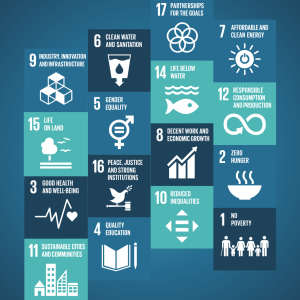Indicators in this domain assess the extent to which migrants have the same status as citizens in terms of access to basic social services such as health, education, and social security. It also describes the rights of migrants to family reunification, to work, and to residency and citizenship. The ratification of the main international conventions is also included within this domain.
Indicators in this category look at the extent to which migrants have access to certain social services such as health, education and social security. They also examine measures to ensure integration and access to work.
Indicators in this domain assess countries’ institutional, legal, and regulatory frameworks related to migration policies. Domain 2 also reviews the existence of national migration strategies that are in-line with development, as well as institutional transparency and coherence in relation to migration management. This domain also investigates the extent to which governments collect and use migration data.
Indicators in this category assess the institutional frameworks of cities for migration. This area also examines the existence of migration strategies consistent with development objectives, as well as institutional transparency and coherence in migration management.
This domain focuses on countries’ efforts to cooperate on migration-related issues with other states and with relevant non-governmental actors, including civil society organizations and the private sector. Cooperation can lead to improvements in governance by aligning and raising standards, increasing dialogue and providing structures to overcome challenges.
Indicators in this category focus on cities’ efforts to cooperate on migration issues with the national government as well as other cities and relevant non-governmental actors, including civil society organizations and the private sector.
This domain includes indicators on countries’ policies for managing the socioeconomic well-being of migrants, through aspects such as the recognition of migrants’ educational and professional qualifications, provisions regulating student migration and the existence of bilateral labour agreements between countries. Indicators equally focus on policies and strategies related to diaspora engagement and migrant remittances.
Indicators in this category assess cities’ initiatives in terms of international student mobility, access to the labour market and decent working conditions for migrant workers. Aspects related to diaspora engagement and migrant remittances are also included in this domain.
This domain studies the type and level of preparedness of countries when they are faced with mobility dimensions of crises, linked to either disasters, the environment and/or conflict. The questions are used to identify the processes in place for nationals and non-nationals both during and after disasters, including whether humanitarian assistance is equally available to migrants as it is to citizens.
Indicators in this category examine the type and level of readiness of cities to deal with aspects of mobility crises. The questions focus on the processes in place for citizens and non-citizens both during and after disasters, especially if humanitarian assistance is available for migrants and citizens.
This domain analyses countries’ approach to migration management in terms of border control and enforcement policies, admission criteria for migrants, preparedness and resilience in the case of significant and unexpected migration flows, as well as the fight against trafficking in human beings and smuggling of migrants. It also assesses efforts and incentives to help integrate returning citizens.
Indicators in this category look at the cities’ approaches to migrant safety as well as return and reintegration policies and the fight against trafficking in persons.
This Profile describes examples of well-developed areas of City of Rio de Janeiro (Brazil) migration governance structures and areas with potential for further development, as evaluated through the six domains of the Migration Governance Indicators (MGI). These address migrants’ rights, a “whole-of-government” approach, partnerships, socioeconomic well-being of migrants, the mobility dimensions of crises, and safe and orderly migration.
Click the icons on the wheel to explore the key findings.
The Migration Governance Indicators (MGI) initiative is a policy-benchmarking programme led by the International Organization for Migration (IOM) and implemented with research and analysis from the Economist Intelligence Unit. Funding is provided by IOM Member States.
Migration Governance: examples of well-developed areas
- The municipality of Rio de Janeiro facilitates access to government-funded health services for migrants. Migrants must be registered in the Unified Health Register (Sistema Único de Saúde), but the migratory identification document is not an impediment to registering and guaranteeing care.
- Migrant children, regardless of their migration situation, have access to free primary school and the entire Education System.
- Migrants can access temporary shelters provided by the municipality of Rio de Janeiro.
- The Specialized Assistance Center for Migrants, launched in 2023 by the municipality in collaboration with IOM, offers social assistance services and legal advice to migrant populations.
Areas with potential for further development
- Establish a local policy or strategy in Rio de Janeiro to combat hate crimes, violence, xenophobia, and discrimination against immigrants.
- Implement specific measures to assist those who wish to migrate from Rio de Janeiro.
- Provide cultural mediation services to help resolve disputes among migrant populations and between residents of Rio de Janeiro and migrants.
Migration Governance: examples of well-developed areas
- The Municipal Intersectoral Committee for Refugees, Migrants and Stateless (COMPARM-Rio) is the agency responsible for designing and coordinating the local migration strategies in Rio de Janeiro.
- COMPARM-Rio serves as the local coordination mechanism on migration issues.
- In 2022, the Municipality passed Law No. 7,730 which establishes the principles and guidelines of the future Municipal Policy for the Protection of Migrants’ and Refugees’ Rights.
Areas with potential for further development
- Formulate a local migration strategy, defined in a programmatic document, and aligned with local development strategies.
- Centralize information on rights, obligations, and public services for immigrants in Rio de Janeiro.
- Collect and publish data on migration in Rio de Janeiro on a regular basis.
Migration Governance: examples of well-developed areas
- Local authorities collaborate with civil society organizations, academia, and private-sector organizations on migration-related issues through the Municipal Intersectoral Committee for Refugees, Migrants and Stateless Persons of Rio de Janeiro.
- The municipality has partnerships with migrant associations, such as associations of communities from Angola, Colombia, the Democratic Republic of Congo, and the Bolivarian Republic of Venezuela.
- The local government has close relationships with the 53 consulates based in the city of Rio de Janeiro and with several embassies.
Areas with potential for further development
- Establish formal partnerships with civil society organizations, private sector organizations, members of the diaspora and expatriate communities in the agenda setting and implementation of migration-related programs in Rio de Janeiro.
Migration Governance: examples of well-developed areas
- Rio de Janeiro has implemented programmes to streamline migrants into the labour market, including job fairs, online job platforms and professional training courses.
- Since 2018, the Municipal Social Assistance Secretariat facilitates the inclusion of migrants in the workforce through the initiative Social Vacancy, that reserves job vacancies for migrants, and the Community Entrepreneurship Course, that provides training on entrepreneurship for migrants and refugees.
- The Secretariat for Women's Policies and the Municipal Secretariat for Economic Development, Innovation, and Simplification of Rio de Janeiro provide quotas for migrant and refugee women and refugees in their professional courses.
Areas with potential for further development
- Conduct assessments at the local level to monitor the demand for migrants in the local labor market or the effects of emigration on the labor market.
- Establish formal programs to promote the ethical recruitment of migrant workers in Rio de Janeiro.
- Establish local mechanisms or incentives to promote the financial inclusion of immigrants and their families.
Migration Governance: examples of well-developed areas
- The municipality of Rio de Janeiro has an emergency management framework with general measures to provide assistance to all residents before, during and post-crisis.
- There are local communication systems in place to receive information on the evolving nature of crises through channel Alerta RIO, which serves as a critical tool for broadcasting disaster alerts and providing preventive measures in the event of an emergency.
- Human mobility is acknowledged by Rio de Janeiro’s climate change policies: the programme “Cidade pelo Clima” aims to provide comprehensive health care to all migrants and refugees and to offer assistance to migrant students in crisis situations.
Areas with potential for further development
- Develop specific measures at local level to manage large-scale population movements during crises.
- Develop a local disaster risk reduction strategy with specific provisions to prevent and manage the impact of disasters on displacement.
- Establish communication systems in Rio de Janeiro that take into account the specific vulnerabilities of migrants during crises.
Migration Governance: examples of well-developed areas
- In 2022, the Public Defender's Office of the State of Rio de Janeiro, in joint action with governmental departments and civil society organizations, conducted the sixth edition of a social action focused on providing legal assistance and support to migrants, refugees and asylum seekers.
- The “Rio + Seguro para Mulheres” campaign was created in 2022 to inform both Brazilian women and international migrants and tourists on how to identify the different types of violence, make complaints and seek support.
- The municipality carries out training sessions with personnel working with migration and related issues, which address cultural diversity, gender, and human rights.
- The Strategic Project Training of the Network for Assistance to Victims of Contemporary Slavery (2022) aims to build capacity for supporting victims of slavery and preventing human trafficking and labour in slavery conditions.
Areas with potential for further development
- Implement programs to facilitate the reintegration of migrants.
- Develop measures at local level to address cases of disappearance or death specifically related to migration.
2023 October




